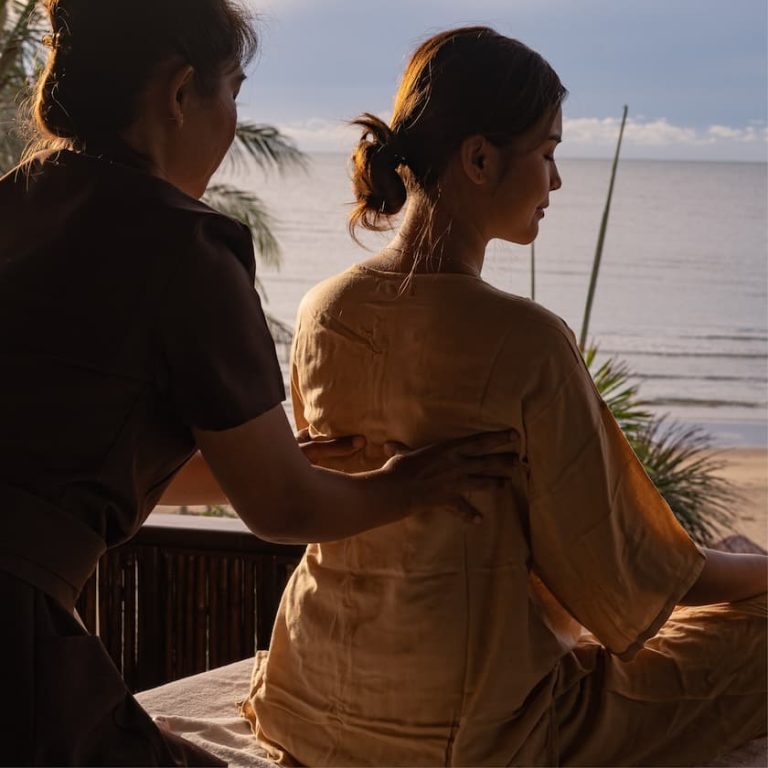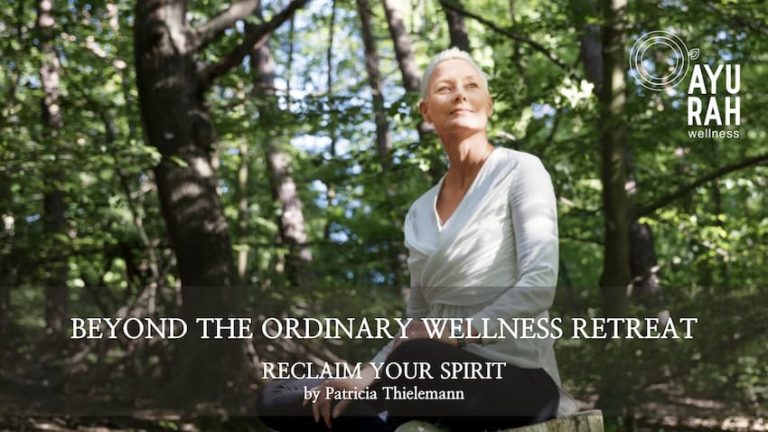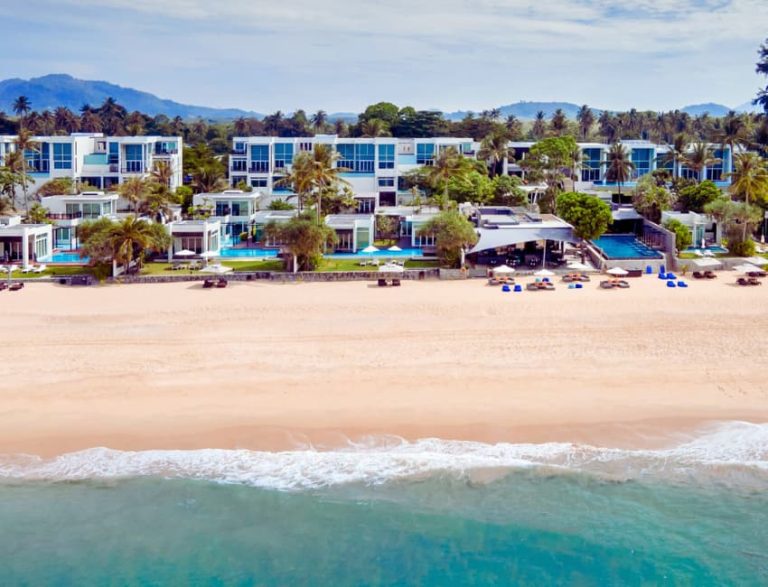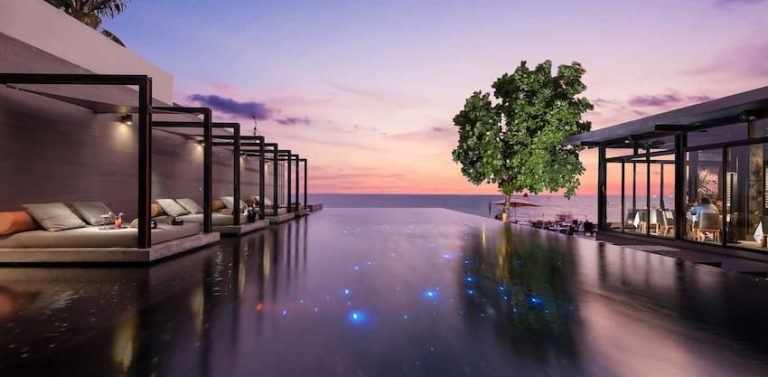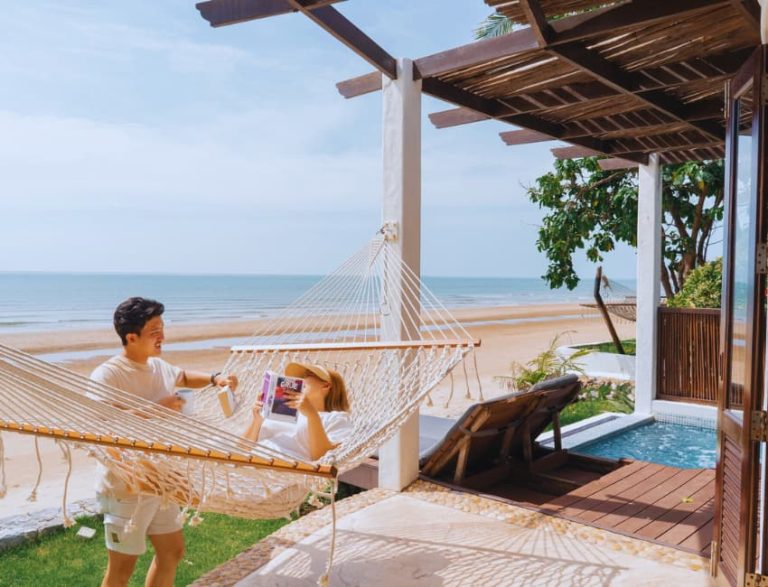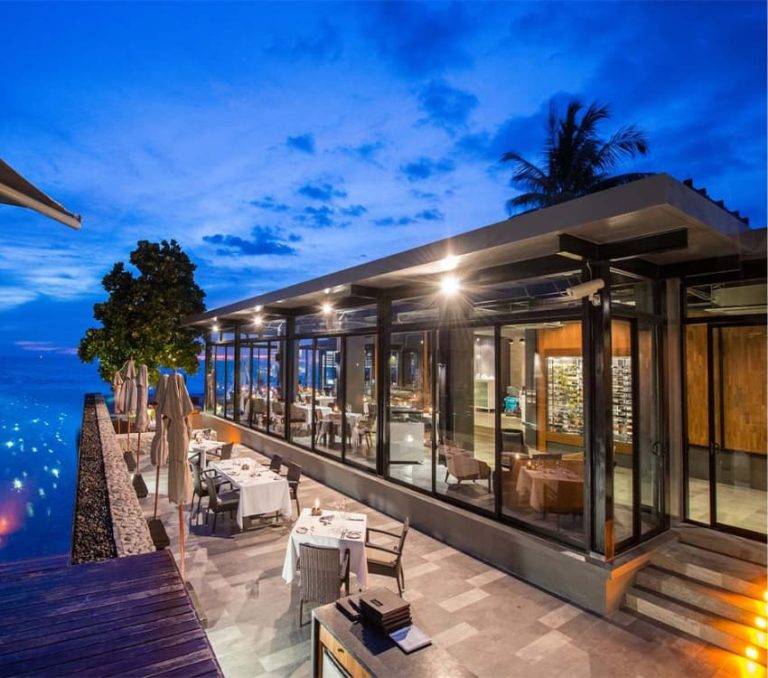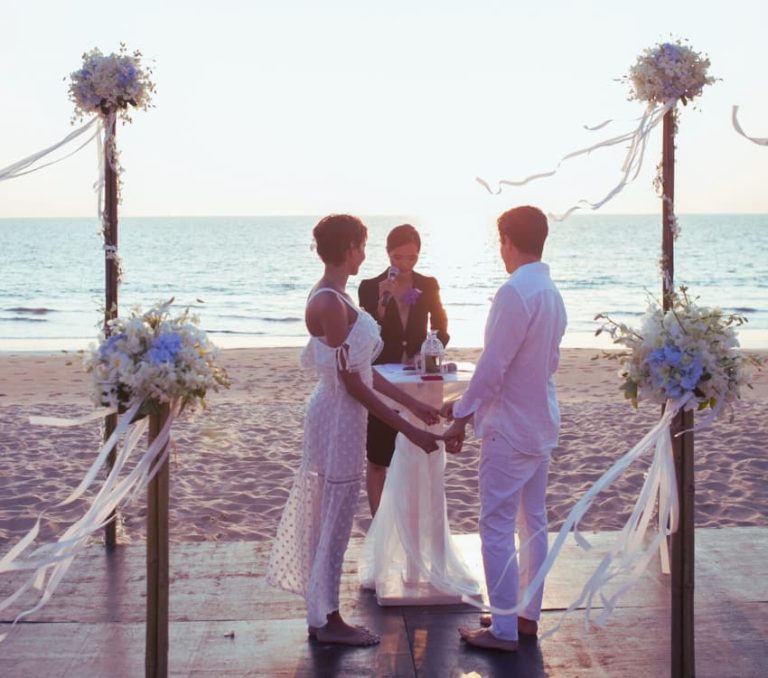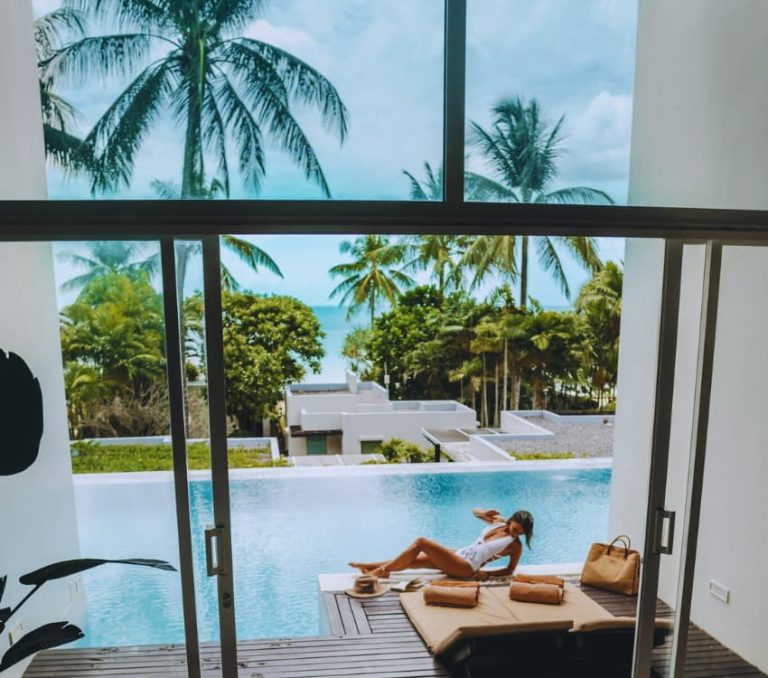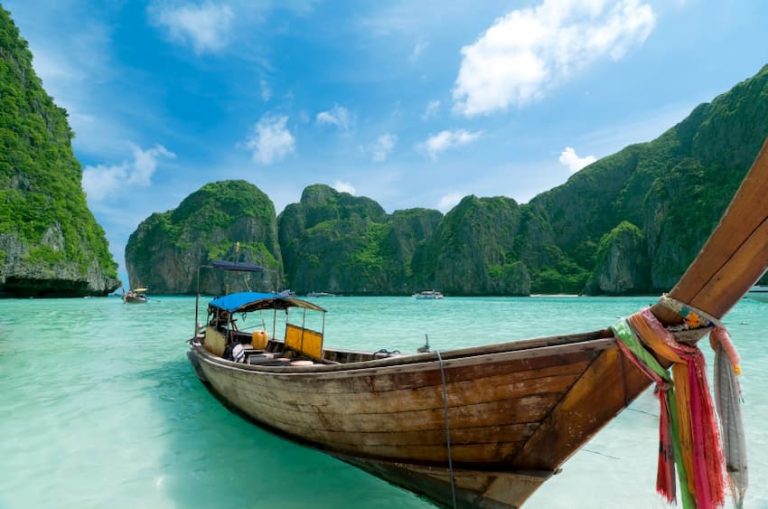At Aleenta Retreat Chiang Mai, our guests frequently inquire about ways to explore the region beyond the city’s well-known attractions, places where they can connect more deeply with Northern Thailand’s history, culture, and local communities. One of the most meaningful ways to do this is by learning about the Karen hill tribes, one of the most prominent and culturally rich ethnic groups in the region.
A visit to a Karen community, or simply taking the time to understand their way of life, offers a rare and beautiful opportunity to witness a culture that is both rooted in tradition and navigating the challenges of the modern world.
The Karen
The Karen people, known in Thai as “Pga K’nyau”, are one of the largest ethnic minority groups in Thailand. Their ancestors are believed to have migrated from Tibet and Myanmar several centuries ago, settling in the mountainous areas of Chiang Mai, Mae Hong Son, Tak, and other northern provinces.
The Karen are not a single homogenous group, but rather a collection of subgroups, each with its own dialect, dress, and traditions. These include:
- Sgaw Karen – the most populous, widely spread throughout Chiang Mai.
- Pwo Karen – predominantly in southern parts of the region.
- Kayah (Karenni) – mostly in Mae Hong Son province.
- Padaung (Long Neck Karen) – known for their iconic brass neck rings, and often associated with tourism.
Despite these distinctions, what unites Karen communities is a shared deep respect for nature, simplicity, and family life.
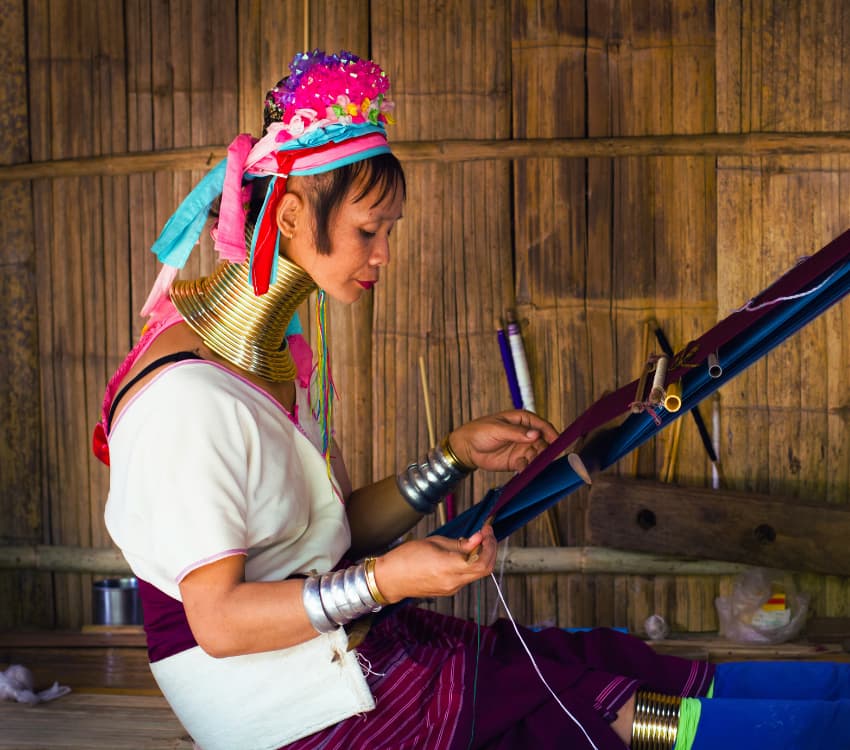
Cultural Identity and Traditions of The Karen
Traditional Karen villages are often nestled in the forested hills, where subsistence farming, particularly rice cultivation, remains a central part of daily life. Their connection to the land is both practical and spiritual, with many customs centred around seasonal rhythms, forest conservation, and ancestral reverence.
Most homes are still built from bamboo and raised on stilts, allowing families to store tools and grains beneath. Women are highly respected within Karen society and often pass down the skills of hand weaving and natural dyeing, with patterns that tell stories of lineage and identity.
Karen New Year is one of the most significant cultural celebrations, marked by song, dance, traditional dress, and a collective affirmation of cultural pride.
Language and Dialects of The Karen
The Karen language comprises multiple dialects, with Sgaw and Pwo Karen being the most widely spoken in Chiang Mai. While many Karen children are educated in Thai, Karen remains the primary language in most homes and is used for storytelling, lullabies, and daily communication.
Visitors are often greeted warmly when they try to speak a few phrases in Karen. Even a simple “Ta blu” (thank you) is a gesture of goodwill that goes a long way in building a connection.
Faith and Beliefs of The Karen
Religious beliefs among the Karen people are remarkably diverse. Many communities remain animist, believing in spirits of nature and ancestors. Others follow Theravada Buddhism, and a large number, especially those who migrated from Myanmar, are Christian, often Baptist or Catholic.
What’s unique is the way these beliefs coexist. It’s not uncommon to find a Christian hymn sung at sunrise, a Buddhist blessing ceremony at harvest, or an offering made to a village guardian spirit before planting season. This openness reflects the Karen’s gentle, inclusive worldview.
Tourism and Its Impact on Karen Communities
Tourism has had a profound impact on Karen communities, both positive and problematic.
On the one hand, community-based tourism has brought economic opportunities. Many villages now operate weaving cooperatives, eco-lodges, and cultural workshops, enabling them to earn an income while sharing their heritage on their terms.
On the other hand, some areas, particularly those showcasing the Long Neck Karen women, have become overly commercialised. In some cases, tourism has reduced culture to spectacle, creating “human zoo” scenarios that strip away dignity and depth.
As a retreat that values cultural integrity and ethical engagement, we at Aleenta Retreat Chiang Mai encourage guests to seek out genuine, respectful, and community-led encounters, where the Karen people themselves are the storytellers.
Visiting Karen Villages Respectfully
If you’re interested in visiting a Karen village, it’s essential to approach the experience with mindfulness and care. Here are a few helpful guidelines:
- Choose modest and comfortable attire.
- Ask permission before taking photographs, especially of individuals.
- Support the community by purchasing local handicrafts or booking workshops directly.
- Choose ethical tour operators or NGO partnerships that work directly with villagers.
- Focus on conversation, not just observation—listen, learn, and ask questions with curiosity and humility.
At Aleenta Retreat Chiang Mai, we’re always happy to help connect guests with reputable community-based tourism initiatives or point you toward organisations focused on cultural preservation.
A Living Culture That Invites Understanding
The Karen people are not a relic of the past. They are a living, evolving culture, resilient, adaptive, and profoundly rooted in values of balance, respect, and simplicity. Their stories, crafts, and ways of life offer a window into a different rhythm of living, one that values connection over convenience and community over consumption.
At Aleenta Retreat Chiang Mai, we believe in travel that leaves a positive imprint on both the traveller and the places and people we meet along the way. If you’re curious about the Karen hill tribes and would like to explore more about their way of life, we’re here to guide you with information, insight, and respect.
Related Articles
- Chiang Mai Customs and Culture
- Sustainable Travel Tips for Chiang Mai
- National Parks and Gardens in Chiang Mai
- Temples Inside the Old City Chiang Mai
- Unforgettable Elephant Day Trip in Chiang Mai
Aleenta Retreat
Chiang Mai
Chiang Mai
189 Soi Ban Mai Lang Mo 18,
Suthep, Muang Chiang Mai District,
Chiang Mai 50200
T: +66 (0)52 090 333


